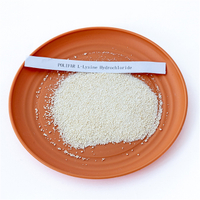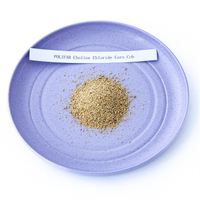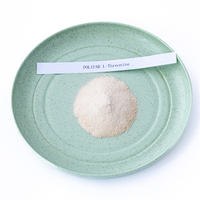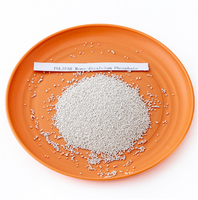Views: 0 Author: Site Editor Publish Time: 2022-09-27 Origin: Site








In the daily feeding process, chickens will inevitably be affected by the external environment and produce stress responses. Today, I will introduce to you the reasons for stress in broilers and how to deal with them.
The article contains the following 4 parts:
1. Causes of stress in broilers
2. The harm of broiler stress
3. How to improve the anti-stress ability of broilers
4. Conclusion

1. Causes of stress in broilers
Physiological aspects
It is mainly the stress of material metabolism and protein synthesis in broilers. This stress can greatly reduce the adaptability of the chicken body, and the requirements for broiler feeding conditions and nutrition are more stringent. If there is a nutritional imbalance in the feed, the chicken feed contains mycotoxins, the color and smell of the chicken feed change, etc., it will directly affect the feeding and absorption function of the broiler, and then stress will occur.
Environmental aspects
Broilers have abnormal physiological changes in the body due to the adverse stimulation of the external environment. For example, the temperature in the chicken house is too low or too high, the temperature difference between day and night is large, the ventilation effect is poor, humidity and the infestation of animals such as mice, etc. These can lead to abnormal physiological changes in broilers.
Pathological aspects
Due to pathogenic infection and disease in broilers, the physiological changes in broilers are abnormal, and various physiological disorders appear. As soon as the environment changes, stress will appear, and due to the reduction of broiler physique, the growth rate is significantly slowed down or stopped, and the activity capacity is greatly weakened.
Management
Due to the improper management of broiler flocks by managers, abnormal changes in broiler physiology, such as feeding at indefinite time, high stocking density of broilers, group transfer, vaccination, feed replacement, transportation, trauma, and untimely cleaning of feces, etc.
2. The harm of broiler stress
After the broiler is stressed, the feed intake of the broiler decreases, which leads to a decrease in the actual conversion efficiency of the feed, the growth of the broiler slows down, the weight gain ratio decreases, and the chicken body is stunted. In addition, after broiler chickens are stressed, the demand for vitamins increases greatly, and vitamin deficiency occurs, which will reduce the immunity of broilers, increase the overall morbidity rate of chickens, and even cause broiler chickens to die to varying degrees. Some broiler flocks will also have behaviors such as pecking at wounds, anus, and eggs, resulting in an increase in the number of inferior broilers, a decrease in commodity value, and a decrease in the economic benefits of broiler farmers.
3. How to improve the anti-stress ability of broilers
Provide good feeding conditions and reduce multiple stress.
According to the growth characteristics of broilers, provide broilers with a clean and quiet growing environment. In the process of raising broilers, match the relevant production equipment to provide good environmental conditions and feed for broilers. In addition, multiple stressors should be reduced. For broilers, a single stress is easy to tolerate, but simultaneous or continuous occurrence of multiple stresses can have serious effects. For example, broilers are kept at a high density and crowded with each other. The stress caused by immunization to the whole flock needs to be adjusted in time to avoid problems such as dampness and air pollution in the chicken house due to poor ventilation, and ultimately avoid the stress of poor environment.
Standard program management.
One is to ensure the stability of the entire production management program. In the related production links such as feeding, watering, and disinfection of broilers, it should be carried out in order and time, so that there is no shortage of materials and water, and broiler breeders cannot be changed frequently.
The second is to maintain the stability of environmental conditions. For example, fixing the time of switching on and off the lights; doing cooling work in summer and keeping warm in winter to prevent the adverse effects of high and low temperature on broilers. Control measures should be taken in time in autumn and winter when the temperature changes greatly; in the thunderstorm season, it is also necessary to do a good job in preventing storms.
The third is to avoid the phenomenon of shocking herds. In the broiler living area, it is forbidden to whistle and shout. No shouting is allowed in the chicken coop, and the switches of doors and windows should be fixed, and the movements must be gentle during the entire process of raising.
Fourth, there should be a transitional stage for feed replacement. When the broiler feed is changed, the breeder should have a 5-day transition period to ensure that the broiler can adapt smoothly.

4. Conclusion
The disease of broiler chickens should be detected in time, treated early, diagnosed early, and controlled early, so as to minimize the stress caused by the disease and ensure the healthy growth of broiler chickens. According to different seasons, the corresponding feeding and management are carried out to prevent and treat diseases in time. In the high temperature season, the feeding and management of broilers should pay attention to cooling down and preventing heatstroke, and appropriately increase the feed intake of broilers. In winter, the temperature supply time should be extended, the related insulation effect should be improved, and the ventilation volume of the chicken house should be fully considered to avoid the deterioration of air quality. The ventilation time should be appropriately increased before and after noon and the ventilation volume should be increased. When encountering a cold wave, take appropriate insulation measures; in case of heavy snow, bedding, feed and common medicines should be prepared, and the roof of the chicken house should be prevented from being crushed by heavy snow.
Polifar is mainly engaged in feed additives (amino acids, phosphates, vitamins), dedicated to researching animal health and improving farm economics. If the poultry and livestock in your farm have a stress response due to malnutrition, we can provide you with corresponding solutions.






